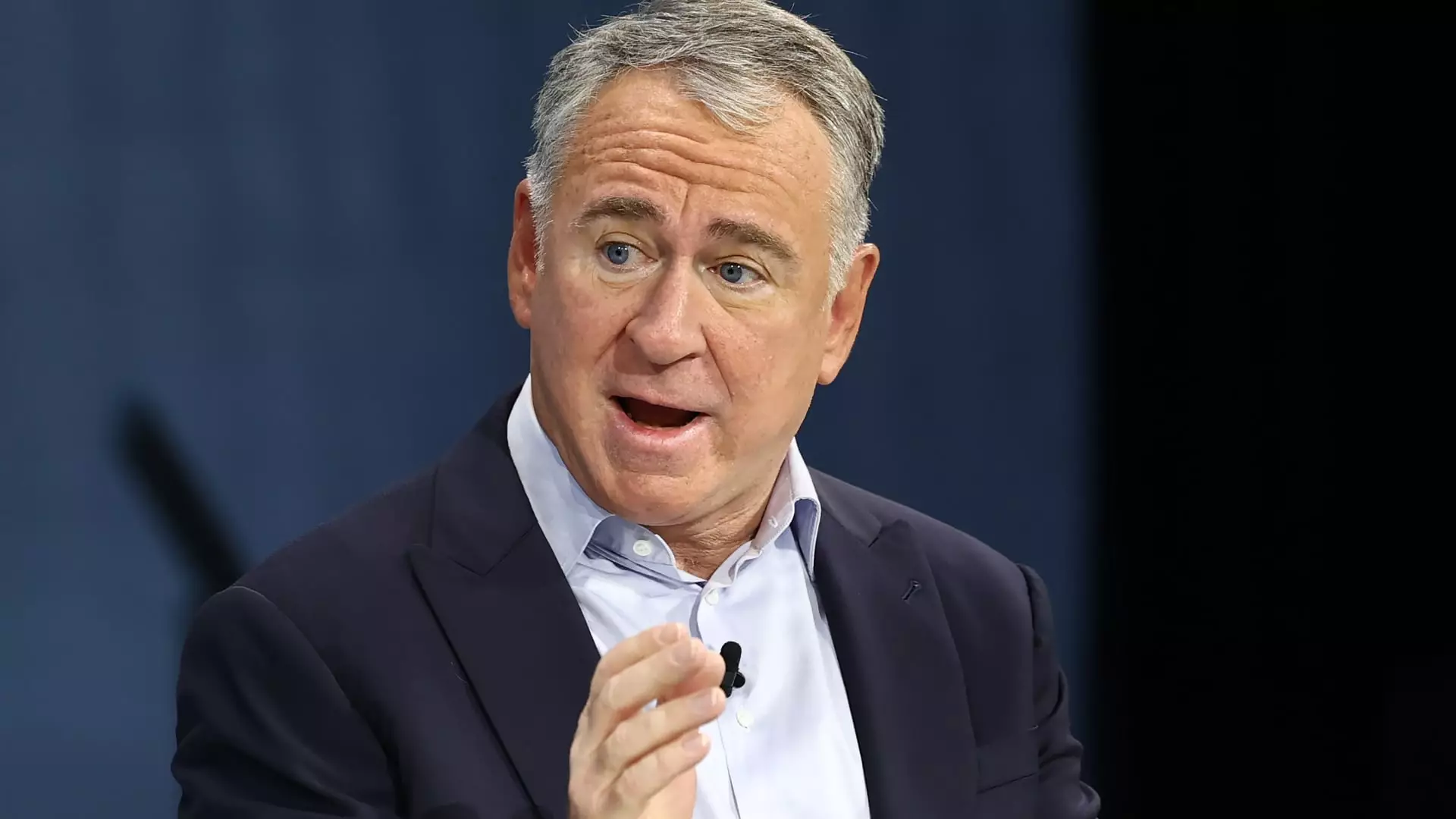In a notable address at the UBS Financial Services Conference in Key Biscayne, Florida, Ken Griffin, the CEO of Citadel, expressed a grave concern about the ramifications of President Donald Trump’s trade policies. Griffin’s comments reflect a broader anxiety in the business sector regarding the impact of aggressive rhetoric on U.S. trade relationships. He articulated the notion that bombastic communication is detrimental, warning that it sows distrust among CEOs and policymakers alike. His assertion that “the damage has already been done” underscores an urgent call for a reevaluation of how national leaders approach trade negotiations.
Griffin’s warnings were particularly poignant in the context of recent trade developments, including President Trump’s directive to slap a 25% tariff on steel and aluminum imports along with other significant duties on Chinese goods. This shift toward protectionism raises questions not only about international relations but also about the integrity of long-term business planning. Griffin pointed out that such policies create an unpredictable environment that complicates strategic investment decisions for multinational corporations. The fear is that as companies navigate these turbulent waters, they may be hesitant to commit to substantial capital expenditures, which impacts employment and economic growth on a larger scale.
It is particularly noteworthy that Griffin, a supporter of Trump and a prolific Republican donor, has taken a stand against one of the administration’s hallmark policies. His critique signals that even among those who align politically with the President, there are rising concerns about the implications of such economic strategies. Griffin emphasizes that crony capitalism, characterized by preferential treatment between political leaders and certain business interests, could become a troubling byproduct of these tariffs—a phenomenon that could jeopardize equitable market competition and ultimately harm the economy.
The essence of Griffin’s argument lies in a fundamental need for stability in trade relations, especially as companies look to make decisions stretching many years into the future. The uncertainty fostered by the current approach to trade negotiations could potentially lead to an environment where business leaders are reluctant to make investments in sectors that drive innovation and growth. Griffin’s perspective invites a broader discussion about the necessity of fostering reliable and predictable trade policies to ensure the long-term viability of U.S. businesses in a globalized economy.
For stakeholders in the financial and industrial sectors, Griffin’s insights should serve as a catalyst for dialogue around achieving a balance in trade policy that protects American interests while fostering healthy international partnerships. By moving away from combative rhetoric and instead focusing on collaboration and negotiation, policymakers can mitigate the adverse effects of tariffs and restore confidence in American trade practices. Only by uniting efforts to create transparent, fair, and sustainable trade relations can the U.S. hope to emerge resilient in the face of global economic challenges.

